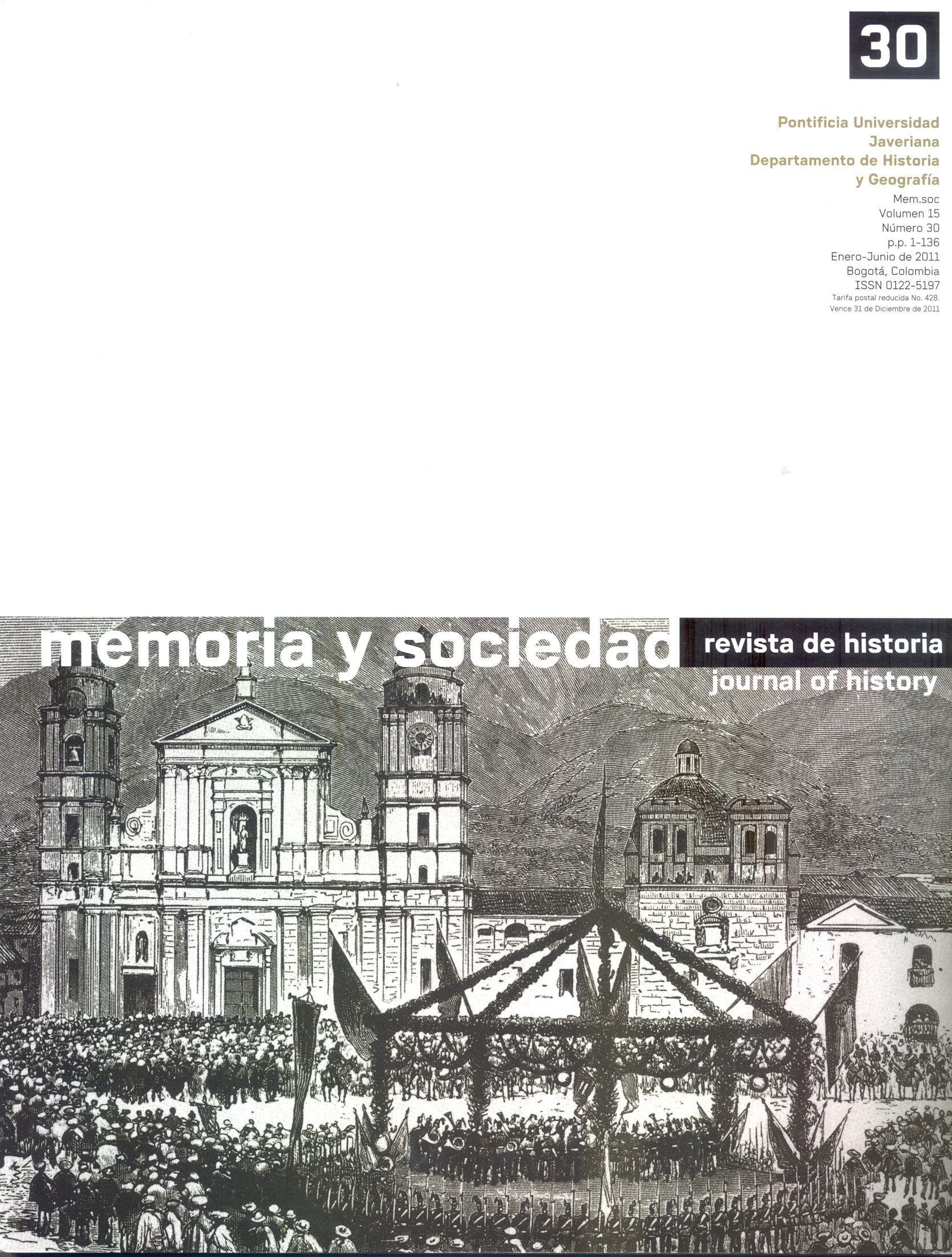Abstract
This article analyzes how was interpreted and recorded the rise of the “comuneros” of 1781, in three documents produced in the XVIII and XIX centuries. It is noteworthy that early, in relation to the uprising, various agents of the Spanish Empire (scribes, civil and religious authorities, etc…) Proposed the task of interpreting the insurrectionary movement and provide remedies to prevent their reproduction in the viceroyalty. In that way, the article seeks to explain the process of developing a counterinsurgent proseabout the rebellion “comunera”, going to this intention with the proposal of Ranajit Guha, opportunely with the rural uprisings in India between the XVIII and XIX centuries.The journal Memoria y Sociedad is registered under a Creative Commons Attribution 4.0 International Public License. Thus, this work may be reproduced, distributed, and publicly shared in digital format, as long as the names of the authors and Pontificia Universidad Javeriana are acknowledged. Others are allowed to quote, adapt, transform, auto-archive, republish, and create based on this material, for any purpose (even commercial ones), provided the authorship is duly acknowledged, a link to the original work is provided, and it is specified if changes have been made. Pontificia Universidad Javeriana does not hold the rights of published works and the authors are solely responsible for the contents of their works; they keep the moral, intellectual, privacy, and publicity rights.
Approving the intervention of the work (review, copy-editing, translation, layout) and the following outreach, are granted through an use license and not through an assignment of rights. This means the journal and Pontificia Universidad Javeriana cannot be held responsible for any ethical malpractice by the authors. As a consequence of the protection granted by the use license, the journal is not required to publish recantations or modify information already published, unless the errata stems from the editorial management process. Publishing contents in this journal does not generate royalties for contributors.

